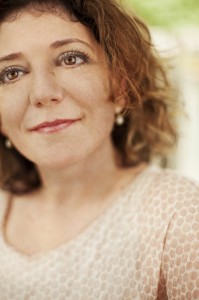Katie Steedly’s first-person piece [The Unspeakable Gift] is a riveting retelling of her participation in a National Institutes of Health study that aided her quest to come to grips with her life of living with a rare genetic disorder. Her writing is superb.
In recognition of receiving the Dateline Award for the Washingtonian Magazine essay, The Unspeakable Gift.
Enter your email here to receive Weekly Wide-Awake
The Art of Fiction

“I was one of those children who tended to perceive the world in terms of things read about it. I began with a literary idea of experience, and I still don’t know where all the lies are. For example, it may not be true that people who try to fly always burst into flames and fall. That may not be true at all. In fact people do fly, and land safely. But I don’t really believe that. I still see Icarus. I don’t seem to have a set of physical facts at my disposal, don’t seem to understand how things really work. I just have an idea of how they work, which is always trouble. As Henry James told us.”
Joan Didion, “The Art of Fiction No. 71“
I have never written fiction on purpose. Like Didion, I started writing as a child. As an avid reader, the line blurred between the stories I read and the life experience I wrote about. Characters were imaginary friends. Important figures were guideposts. It was all huge and miraculous. Today, I wonder about the distance between reality and possibility, fear and faith, truth and lies as my memory dances in words. I wonder why I am so drawn to nonfiction when fiction might somehow, in a magical and cosmic way, allow me to find a better truth. Perhaps I can’t handle the truth.
I have always been fascinated with how things work. With digging deep. With why. With how. With fact gathering, analysis. With theory building — with facts being seen as more qualitative, skeptical, and critical in nature. Like Icarus, or Sisyphus, or David, facts don’t keep me from flying, or pushing, or slaying. As Didion and James suggest, that is often trouble. That leaves me stammering through sentences, losing my breath as the story unfolds, and too scared to say what I mean and mean what I say. Finding and using my voice – and realizing my voice is a unique gift — is the essence of how things work in the writer’s world.
Didion talks a lot about the power of writing and the weight of authorship. I agree with her. When asked about her assertion that writing is hostile, she explains, “It’s hostile in that you’re trying to make somebody see something the way you see it, trying to impose your idea, your picture. It’s hostile to try to wrench around someone else’s mind that way. Quite often you want to tell somebody your dream, your nightmare. Well, nobody wants to hear about someone else’s dream, good or bad; nobody wants to walk around with it. The writer is always tricking the reader into listening to the dream.” “Listening to the dream,” for me, involves inspiration, understanding, unearthing, revealing, and enfolding. All that is slow and light and soft and foundational in a world which is fast and dark and hard and superficial. In that way, the power of an author is to change the world.
About Katie

From Louisville. Live in Atlanta. Curious by nature. Researcher by education. Writer by practice. Grateful heart by desire.
Buy the Book!
The Stage Is On Fire, a memoir about hope and change, reasons for voyaging, and dreams burning down can be purchased on Amazon.





